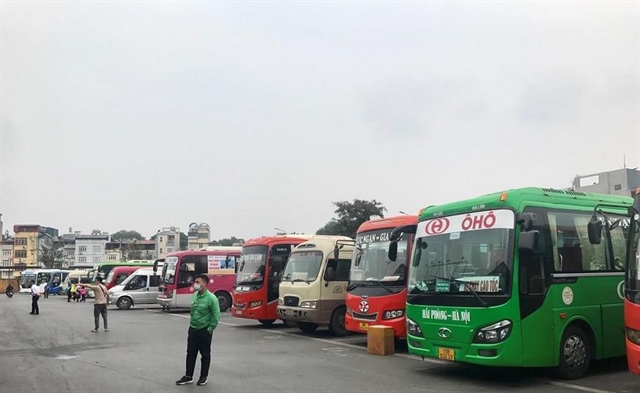During the COVID-19 pandemic, "contactless communication" is being applied by bus businesses in connecting and interacting with customers.

During the COVID-19 pandemic, "contactless communication" is being applied by bus businesses in connecting and interacting with customers.
This is also seen as an opportunity for businesses to increase technology application and accelerate transformation to adapt to the pandemic.
Nguyen Van Quyen, Chairman of the Viet Nam Automobile Transportation Association, said that before the COVID-19 pandemic, many road transport enterprises promoted the application of technology in the management of passenger data, transactions, payments and improved customer care service.
However, the COVID-19 pandemic has changed consumer behaviour, so businesses are stepping up to apply technology to ticket sales, transportation management as well as increasing transactions of carriers.
According to Ha Son – Hai Van Co., Ltd, the number of passengers buying tickets through the company's app or website has doubled compared to before the COVID-19 pandemic.
These methods effectively support the company in ticket sales, online payments and delivery of goods, while improving management efficiency and reducing costs.
Director of Ve Xe Re JSC, Tran Nguyen Le Van, acknowledged that the application of technology in transportation services was flourishing following the development of the market, giving the transportation industry many opportunities to find customers and improve services.
Through the application of technology, car companies and transport service providers could provide accurate and complete information, while ensuring the safety of customers, he added.
Traffic experts said that during the COVID-19 pandemic, "contactless communication" had created an opportunity for app developers to pioneer in helping customers find garages and travel routes, booking and handling procedures easily. This has improved safety and saved costs and resources for businesses.
However, Nguyen Van Quyen, Chairman of the Viet Nam Automobile Transportation Association, said that although transport enterprises' interest in applying technology towards digital transformation had increased, this was still limited as most businesses were facing many difficulties.
The COVID-19 pandemic was putting great pressure on transportation services, especially in passenger transport as revenue recently dropped by about 80 per cent.
A representative of the Hai Phong City’s Transport Association said that the digital transformation process and investment in automation models cost billions of Vietnamese dong.
This cost was quite high for small and medium sized enterprises in Viet Nam. Financial resources for digital governance and investment became one of the problems for businesses to solve without the support of the State and financial institutions.
From experience of successful digital transformation, Nguyen Manh Ha, director of the Ha Lan Trade and Tourism JSC, said that it was imperative for businesses to have a technology platform. Only then could businesses declare the information and itinerary of passengers transported during the day.
The software of the enterprise must also be connected to other sectors such as tax, police, and traffic, he added.
This application must also have QR codes for passengers to declare their health. To do this, businesses must have both human and financial resources, Ha added.
Enterprises that did not apply tech should have their business licences revoked, so that digital transformation in transport enterprises could be successful, Ha emphasised.
Director of the Information Technology Centre under the Ministry of Transport Le Thanh Tung said the ministry would complete legal documents, mechanisms and policies, creating a favourable legal environment for digital transformation, promoting digital government, digital economy, while being ready to test and apply innovations in the transportation industry.
In addition, there would be mechanisms and policies to promote sharing, provide open data and build platforms for transportation and logistics services in the form of electronic transactions, the director noted. — VNS





